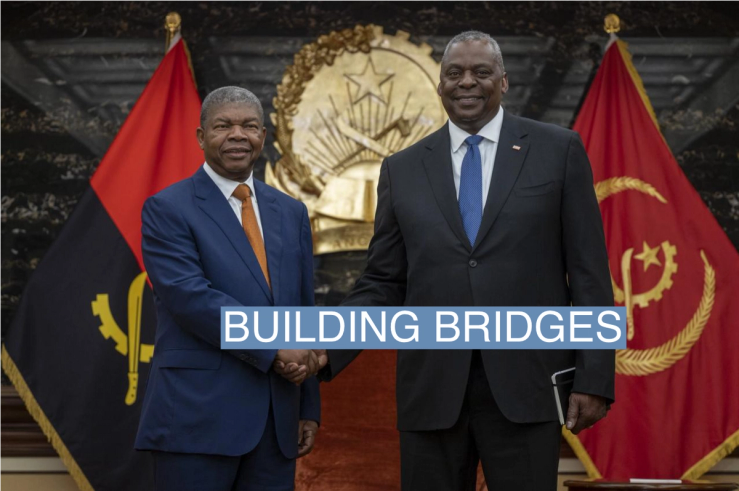The News
When U.S. President Joe Biden and Angolan President João Lourenço meet at the White House on Thursday, they’ll discuss a major African infrastructure project at the heart of the Biden administration’s efforts to counter China’s influence.
Backed by the U.S. and European Union, the Lobito Corridor is a complex rail project that will connect Zambia and the Democratic Republic of Congo to regional and global markets through Angola’s Lobito port. The project is viewed as especially important to unlocking access to sources of minerals needed to produce electric vehicles, an area where the White House is determined to build up supply chains that are free from China’s grip.
“That’s going to be a major thoroughfare that cuts across the subregion,” Jeannine Scott, a nonresident senior fellow at the Atlantic Council, told Semafor. “It’s really important for some of the critical minerals issues as well as other goods and services that people want to move through that region.”
The rail project falls under the umbrella of the Biden administration’s Partnership for Global Infrastructure and Investment. The U.S. signed a memorandum of understanding with the EU and three African countries on the project back in October, and feasibility studies for the project are expected to begin by the end of the year.
Thursday’s meeting may yield some new announcements on the project, as the administration tries to signal a commitment to partnering with Africa even as wars in Europe in the Middle East take up the president’s attention.
“This is something the administration has to say for itself with regard to the rhetoric about more serious engagement, less whining and complaining about Chinese influence, or Russian influence on the continent for that matter,” Michelle Gavin, the former U.S. ambassador to Botswana, said in an interview.
Asked about potential announcements on U.S.-Angola infrastructure cooperation, a State Department spokesperson said only that the U.S. continues “to work with the Angolan government and the private sector to advance our shared interests of generating inclusive economic growth, promoting regional security, and supporting Angola’s economic and democratic reforms.”
In this article:
Morgan’s view
The Lobito project and Angola more broadly are important tests for the Biden administration’s efforts to engage Africa and roll back Chinese inroads on the continent.
Angola, like other African countries, has received funding from China for infrastructure projects in the past through China’s Belt and Road Initiative. At the start of this year, Lourenço met with Qin Gang, China’s now-missing ex-foreign minister, when he toured the continent in pursuit of deeper cooperation.
But Angola has also increasingly shown a willingness to look elsewhere for financing of major projects. And the Export-Import Bank over the summer signed off on $900 million in loans for a major solar energy project in Angola that the State Department estimates will generate over 500 megawatts of renewable power and support 1,600 U.S. jobs.
The Biden administration is careful not to frame its work in Africa as a response to China, and the infrastructure initiative is about more than just Beijing — it’s also meant to tackle climate change and other global problems.
“Our focus is working with Angola as a partner and building the U.S.-Angolan bilateral relationship,” the State Department spokesperson said when asked about China’s influence in the country, adding that the U.S. is “encouraged by Angola’s efforts to attract quality investors” and “the success that U.S. firms have had in Angola.”
But the Partnership for Global Infrastructure and Investment is still widely viewed as a Western alternative to the Belt and Road Initiative.
Room for Disagreement
One reason African countries might be lukewarm on the U.S.: Biden looks unlikely to travel to Africa this year despite a pledge to do so at the White House’s Africa summit last December. Even with a flurry of travel by top officials to the region, including Defense Secretary Lloyd Austin and Vice President Kamala Harris, the delayed trip is still a source of disappointment.
“We question why there may be more of a presence of China or Russia or others and the response that you get from out there is, well we want to work with you more but you’re not present as much as we’d like to see you,” Scott said. “And so there’s kind of this vacuum and this vacuum gets filled by others who are willing to come and engage more.”
Notable
- One of the thornier topics Biden will broach in his meeting with Lourenço is democracy reform. Angola is classified as “not free” by Freedom House due to corruption and political repression.
- China is “winning Africa’s ‘white-gold’ rush for lithium” used in electric vehicle batteries, The Economist writes.


